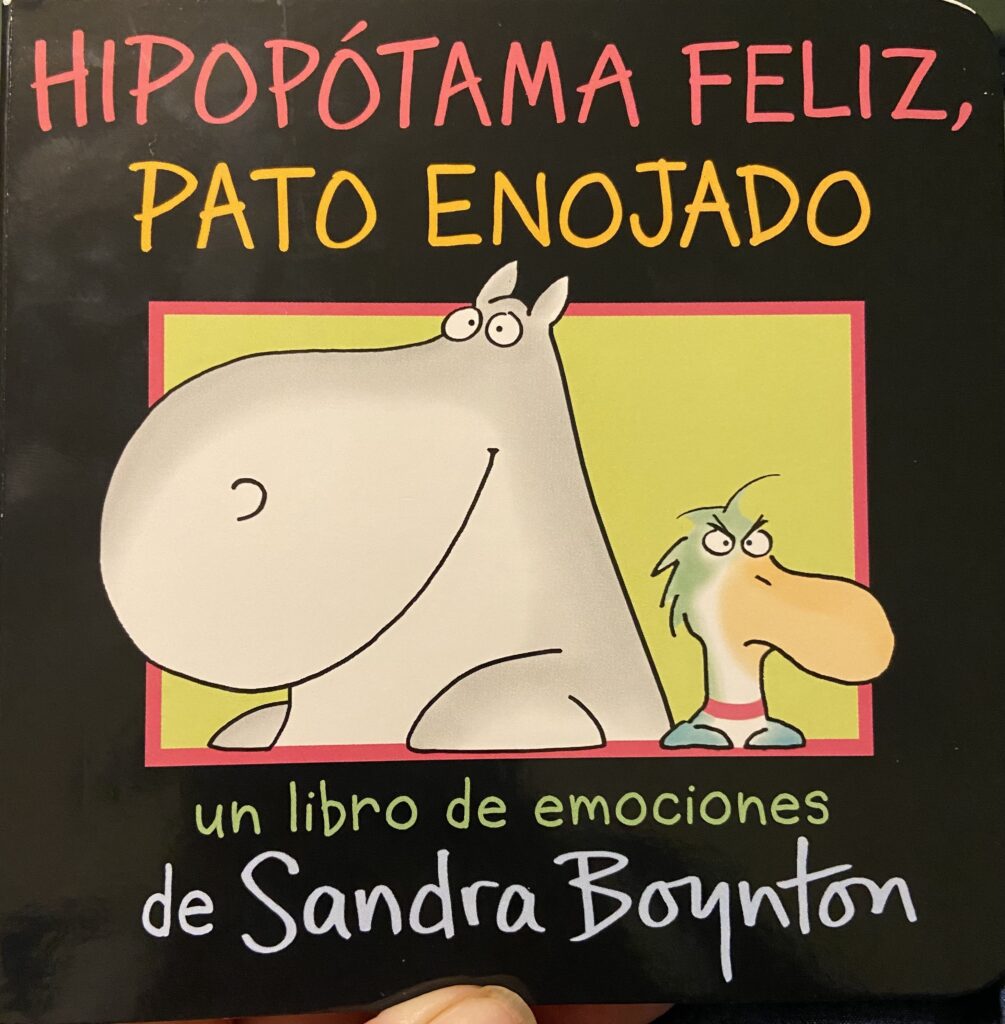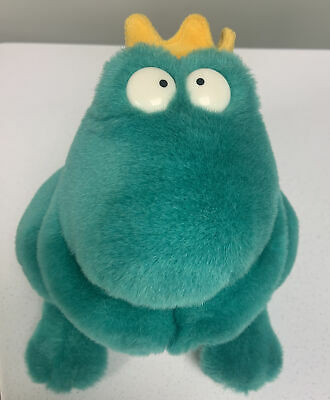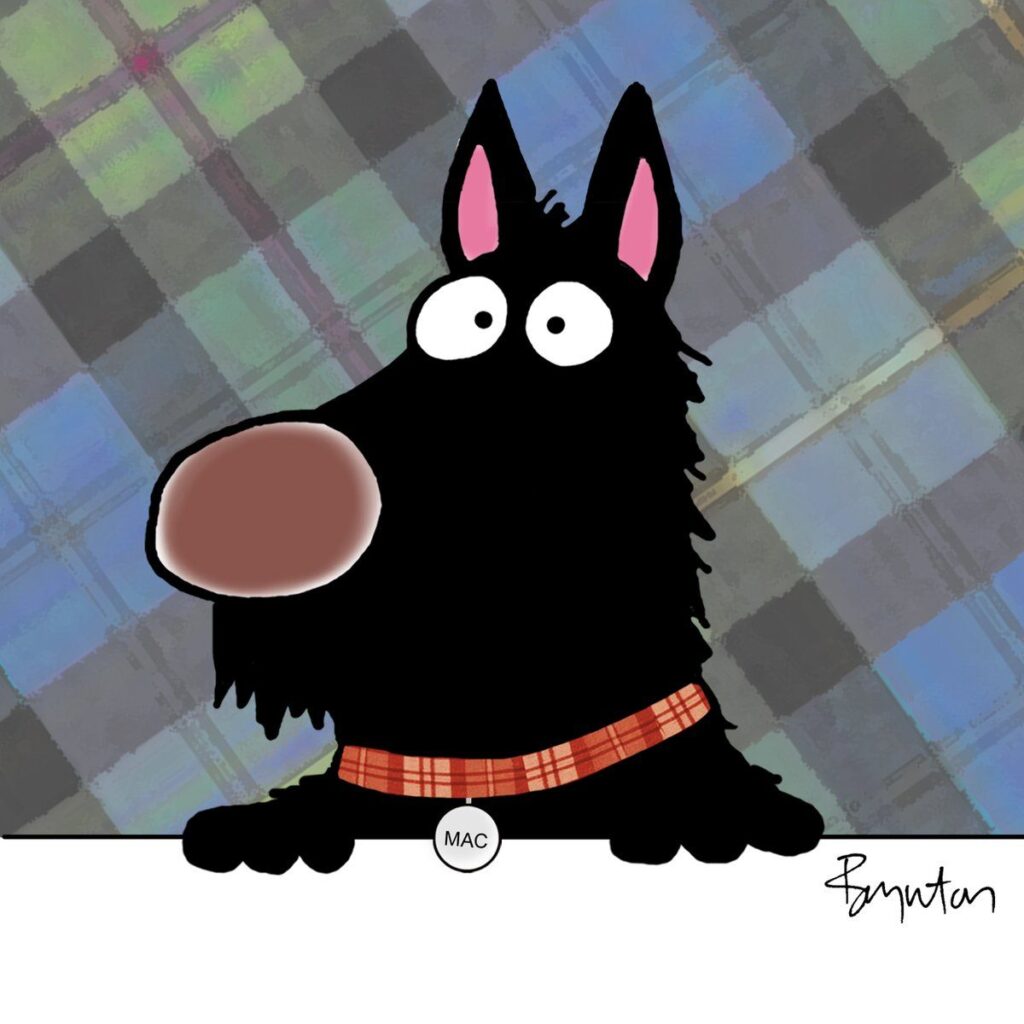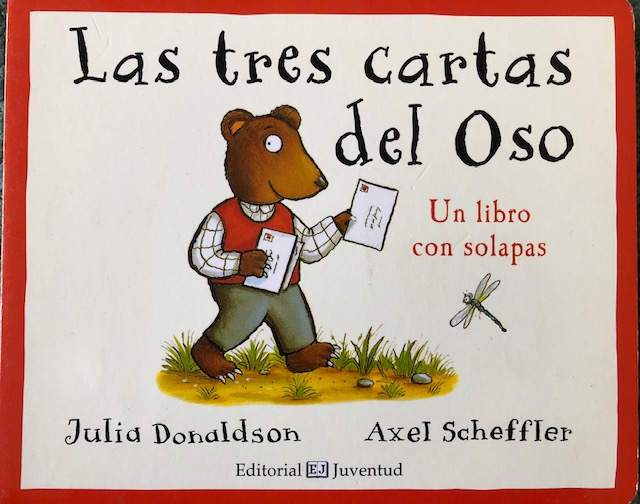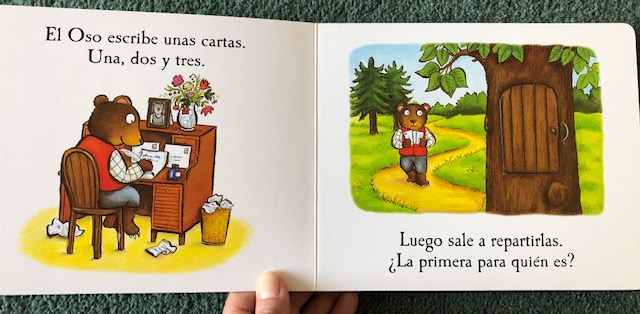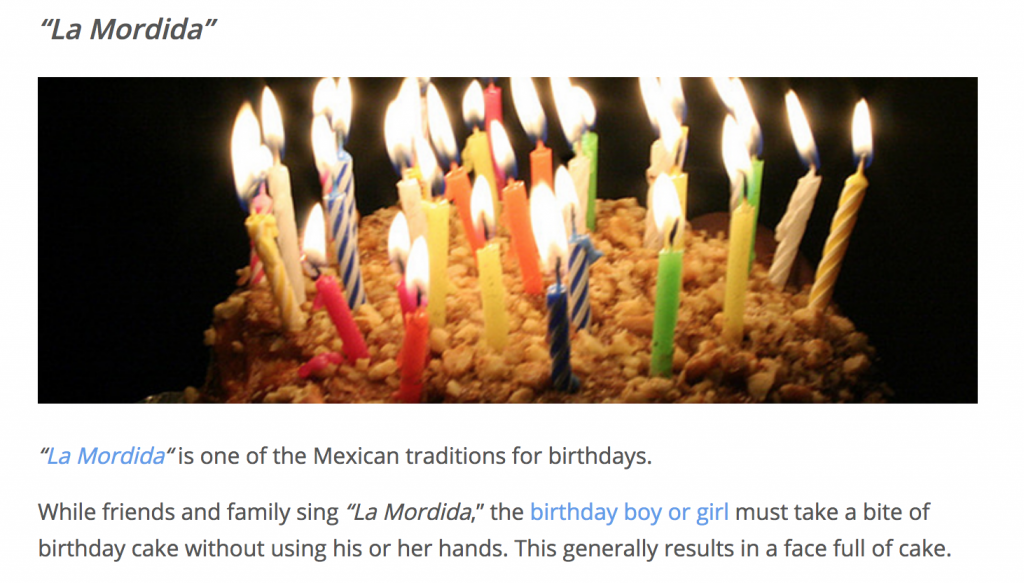A new book from Sandra Boynton
In the post this morning I received an exciting package – a new book that I wasn’t expecting until mid September! I love Sandra Boynton books – Moo Baa La la la was one of my sons’ favourite books as toddlers and Azul el sombrero, Verde el sombrero was a massive hit when I recorded it for KS1 in lockdown (I received several reports and even videos of children exclaiming ¡Ay caramba!) so when I saw that she’d published a new book, I preordered it!
The book is all about emotions. Here’s the opening page that sets up the whole book:
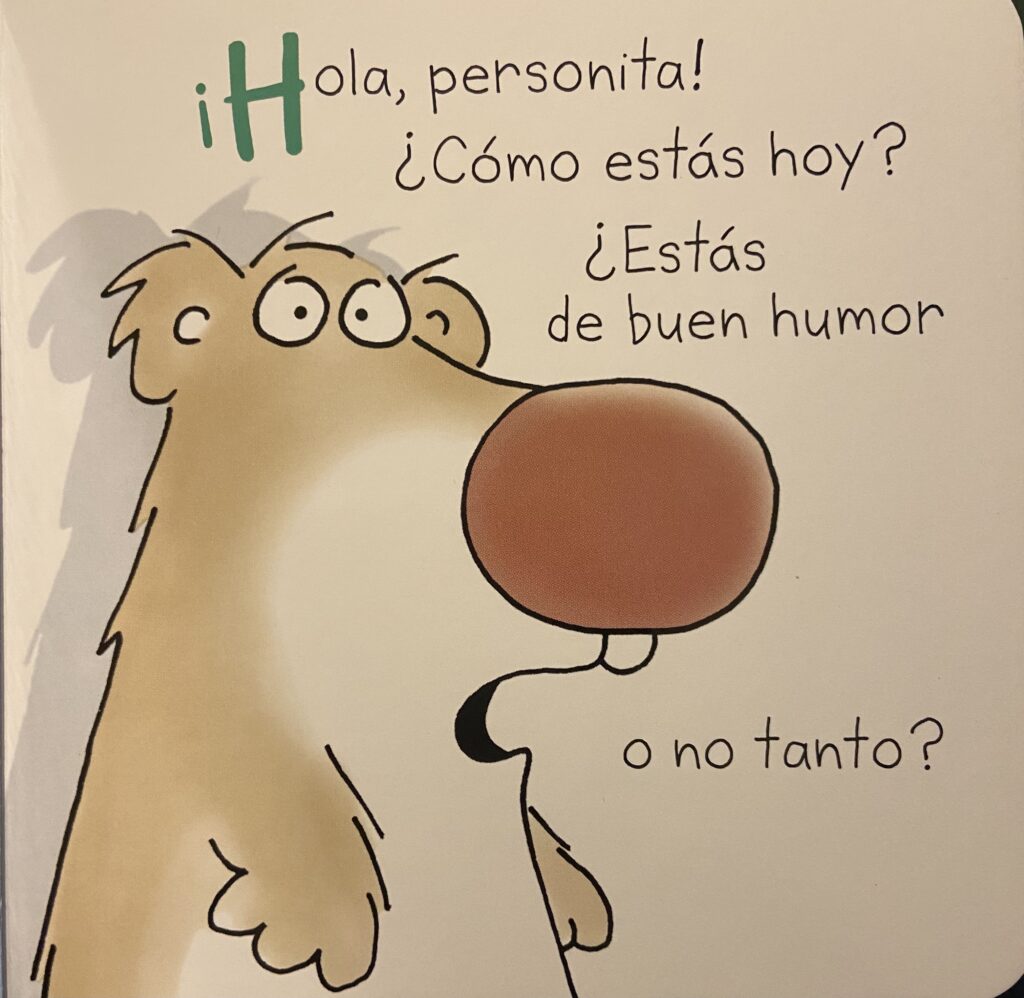
Each page then features an animal and an emotion. Here are the first two pages:
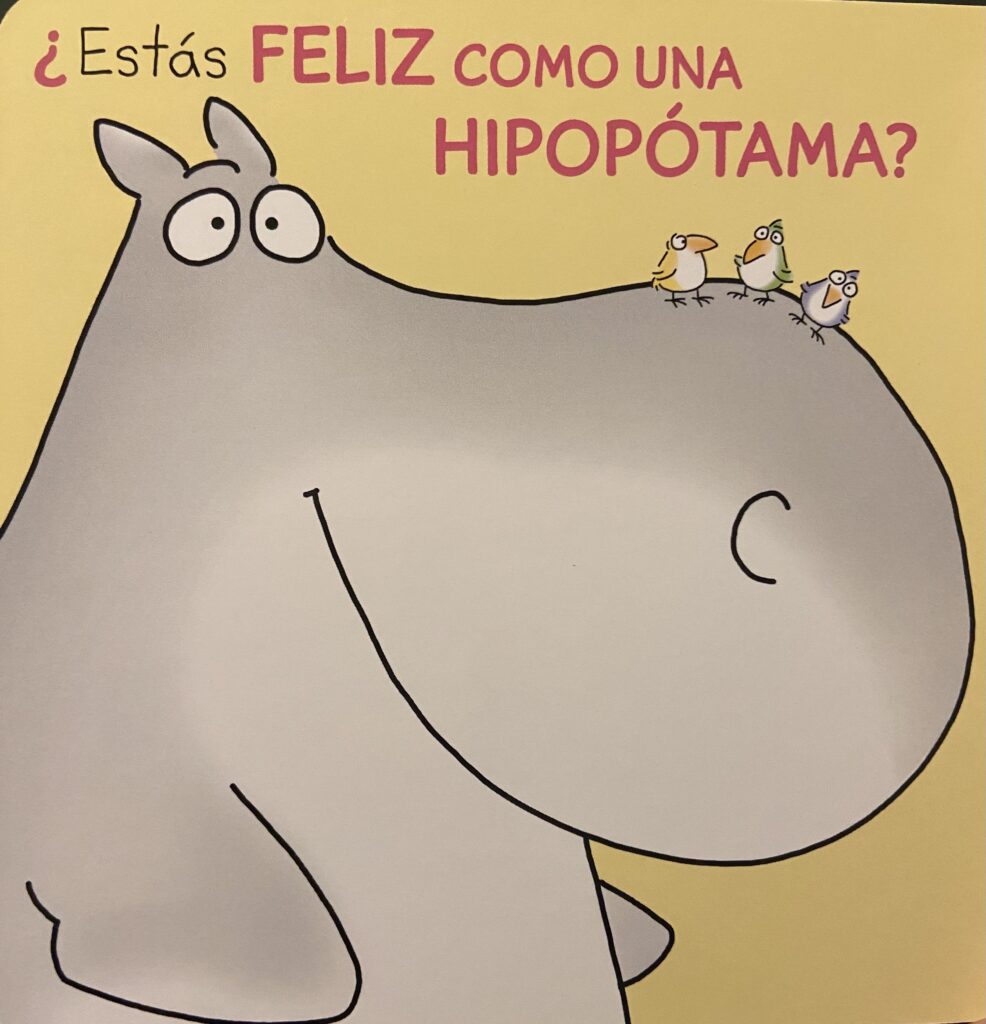
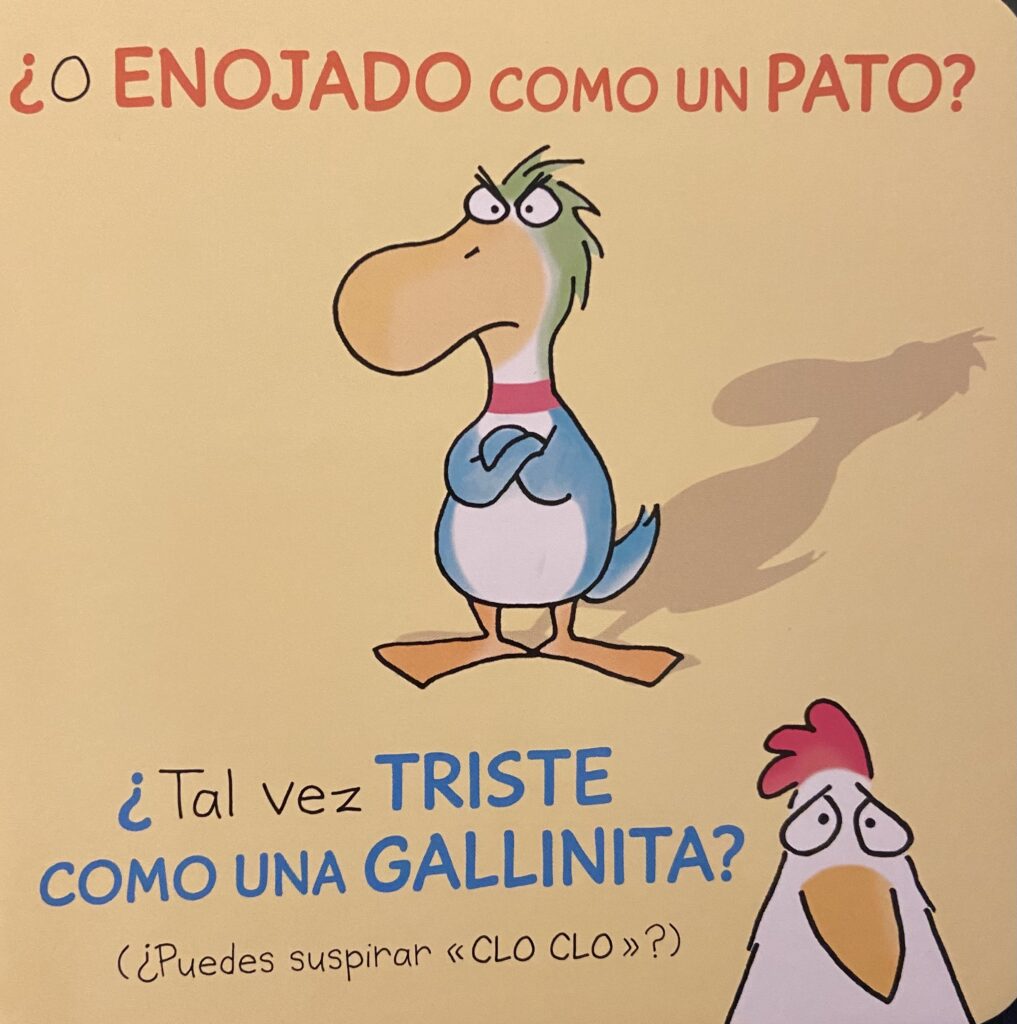
All the emotions go with estar and include enérgico, gruñón and contenta. As you can see from the sample pages and the examples I’ve given, the adjectives are presented in masculine – enojado, enérgico – and feminine – contenta – forms as well as those that are unchangeable – triste, feliz.
I love the illustrations which make the book. All the animals have their own characters and also demonstrate their emotion brilliantly. I also like that there is some more unusual vocabulary like complacido (contented/pleased with yourself) and confundida (confused) which opens up discussion of confounded being another (stronger) way of saying confused.
The final message of the book is that whilst the hope is that everyone is happy, it’s OK if you’re not, you’re amongst friends and that emotions change day to day.
It’s a lovely stand alone book but would also be good to introduce and/or review :-
- animal vocabulary
- estar + adjectives
- use of muy (and potentially bastante) to qualify the extent of the feeling
- masculine and feminine nouns (cerdo and hipopótamo are masculine nouns but are presented in feminine form as the animal is female)
- the diminutive -ito/a
Having read the book, I’d try some of the following:
- Asking the question ¿Cómo estás? and looking for a reply starting Estoy... (I am….)
- Ask the question ¿Cómo está (animal)? to use the 3rd person with replies (animal) está (emotion) which requires learners to swap the indefinite artilce in the text for the definite article in their reply e.g. ¿Cómo está la rana? La rana está contenta
- Make new sentences about animals and emotions based on pictures (see below for some possible ones!)
- Make similes using the structure [adjective] como [animal] e.g. enfadado como un león; hambrienta como una cabra; listo como un búho
I thoroughly recommend the book – and all of Sandra Boynton’s books as they’re great fun but also great to spark ideas and activities.
What do you think?
